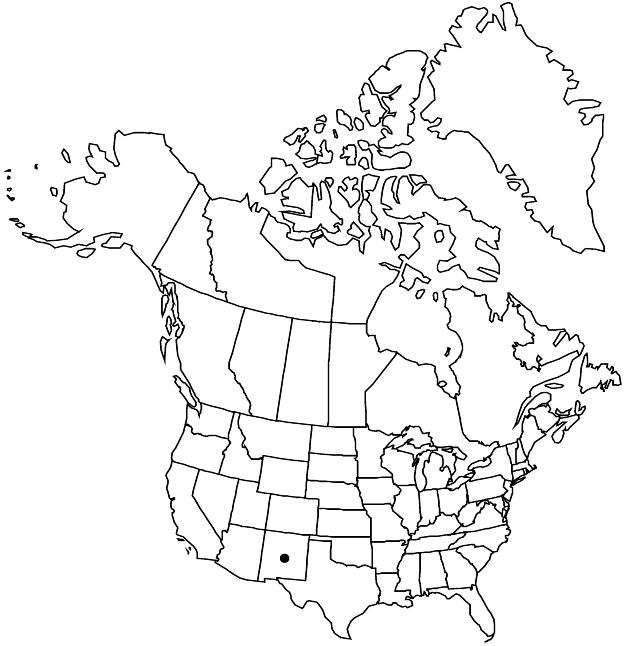Euphorbia rayturneri
Novon 22: 482, figs. 1, 2. 2013.
Herbs, annual, with slender taproot. Stems prostrate, 4–8 cm, uniformly strigillose. Leaves opposite; stipules distinct, filiform, 0.6–0.9 mm, pilose; petiole 0.5–0.9 mm, strigillose; blade ovate to elliptic, often slightly falcate, 5–11 × 2–5 mm, base asymmetric, one side cordate, other round to attenuate, margins sharply serrulate, apex acute, surfaces often with red spot toward middle, abaxial surface strigillose, adaxial surface glabrescent; only midvein conspicuous. Cyathia solitary at distal nodes; peduncle 0.5–1.6 mm. Involucre obconic, 0.9–1.2 × 0.8–1.2 mm, strigillose; glands 4, green, yellow, or light pink, circular to oblong, 0.2 × 0.2–0.3 mm; appendages absent or green, yellow, or light pink, forming narrow margin on distal portion of gland, 0–0.1 × 0.2–0.3 mm, distal margin entire. Staminate flowers 5–8. Pistillate flowers: ovary strigillose-canescent; styles 0.3–0.4 mm, unbranched. Capsules oblate, 1.7–2 × 2.2–2.7 mm, strigillose; columella 1.5–1.9 mm. Seeds blackish brown, broadly ovoid, 3-angled in cross section, 1.2–1.4 × 1–1.1 mm, with 2 well-defined transverse ridges that do not pass through abaxial keel. 2n = 14.
Phenology: Flowering and fruiting late summer–early fall.
Habitat: Desert grasslands.
Elevation: 1400–1700 m.
Discussion
Euphorbia rayturneri is known from only three collections in extreme southwestern New Mexico. Given its close proximity to the Mexican border, the species may also occur in the adjacent states of Chihuahua or Sonora.
Selected References
None.
